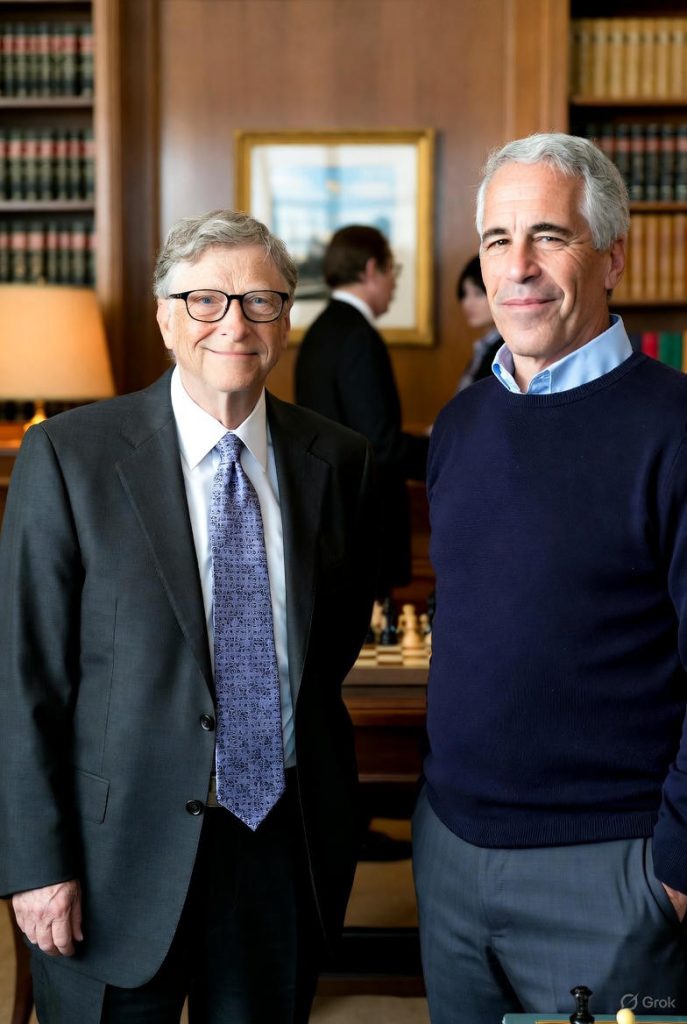
Assessing Bill Gates’s Expertise and the Allegations of Self‑Dealing
1. Expertise and Influence
Bill Gates possesses extensive practical knowledge in areas such as climate adaptation, global health, and large‑scale philanthropy. This expertise derives primarily from decades of hands‑on involvement through the Bill & Melinda Gates Foundation rather than formal academic credentials in fields like agronomy or epidemiology—his background is in engineering.
- The Foundation has directed billions of dollars into research collaborations, data‑driven programmes, and partnerships with leading scientists. Notable examples include funding crop‑resilience projects that have reached millions of smallholder farmers across Africa and Asia.
- Critics such as Mark Gongloff argue that Gates’s recent shift from climate mitigation toward adaptation reflects pragmatic decision‑making rather than ignorance, although some contend that this emphasis may understate the urgency of mitigation efforts【0】.
Consequently, Gates’s influence stems more from the scale of his financial resources and his global network than from traditional scientific credentials—a point that fuels debate over the merits and limits of “philanthro‑capitalism”【17】.
2. Self‑Dealing Allegations
The claim that Gates channels Foundation donations to NGOs that purchase products from companies in which he holds equity is frequently described as “self‑dealing” or a conflict of interest. While not a conspiracy theory, investigative reporting and scholarly analyses have identified recurring patterns where grant allocations appear to intersect with the Foundation’s investment portfolio.
| Area | Evidence of Overlap |
|---|---|
| Pharmaceuticals & Health | The Gates Foundation Trust holds sizable stakes in firms such as Pfizer, BioNTech, and Merck (valued at several billion USD). Simultaneously, the Foundation has awarded > $10 billion to vaccine initiatives and NGOs (e.g., GAVI) that procure products from these companies. A 2011 PLoS Medicine study documented $1.2 billion in pharma holdings concurrent with malaria/HIV funding that utilized the same firms【5】. |
| Agriculture & Food | Gates is the United States’ largest private farmland owner and invests in agribusinesses like Monsanto (now Bayer) and Beyond Meat. Grants supporting “heat‑resilient crops” often require purchasing seeds or technology supplied by these corporations. A 2025 analysis described this as “funding demand to profit from supply,” linking African programme grants to increased GMO adoption tied to Gates‑owned entities【9】【37】. |
| Broader Portfolio Overlaps | A 2007 Los Angeles Times investigation revealed that 41 % of the Foundation’s > $20 billion assets were held in companies whose activities contradict its mission (e.g., fossil‑fuel producers, fast‑food chains)【2】. More recent SEC filings show that roughly two‑thirds of the current $49 billion portfolio is concentrated in three stocks—Microsoft, Berkshire Hathaway, and Waste Management—creating indirect financial benefits for Gates and his affiliates【30】. |
| Media & Narrative Shaping | Over $300 million in grants have been directed to major media outlets (NPR, BBC, The Guardian). Critics argue that this financial relationship may bias coverage, as highlighted in a Columbia Journalism Review piece examining the framing of Gates’s initiatives【3】【10】【11】. |
| Other Notable Cases | A 2021 Nation report catalogued more than 19,000 grants, identifying 19 % of them as potential conflicts, such as a $50 million stake in Intarcia (a diabetes‑treatment firm) paired with $25 million in related grants【0】. Social‑media discourse frequently characterises these dynamics as “philanthropy as an ATM” for Gates’s climate investments【31】【35】. |
Collectively, these findings suggest systematic, rather than isolated, intersections between the Foundation’s grant‑making and its investment holdings.
3. Foundation’s Defense
| Argument | Supporting Details |
|---|---|
| Legal & Structural Separation | The Bill & Melinda Gates Foundation is a 501(c)(3) nonprofit. Its investment arm (the Trust) is legally distinct from the grant‑making entity, and IRS regulations prohibit direct personal benefit. The Foundation publishes its investment portfolio and enforces a conflict‑of‑interest policy that requires disclosure of overlapping interests【4】【6】. |
| Mission‑Driven Rationale | Proponents argue that leveraging investments can catalyse market development where private capital alone would not venture—for example, subsidising vaccine distribution in low‑income countries creates sustainable demand for pharmaceutical firms, ultimately saving lives (over 150 million children vaccinated since 2000)【20】. |
| Scale of Impact | Since 2000, the Foundation has disbursed > $100 billion, achieving measurable outcomes such as halving child mortality rates and contributing to the near‑eradication of polio in several regions【29】. Fact‑checking organisations note that Gates has personally donated > $60 billion, with no evidence of illegal profiteering【20】【21】. |
While these defenses underscore compliance with legal standards and highlight tangible public‑health benefits, critics maintain that the structural overlap still raises ethical concerns about concentration of influence and potential tax‑benefit exploitation (estimates of > $73 billion in annual tax revenue loss)【28】.
4. Conclusion
Bill Gates possesses considerable practical expertise in the domains he champions, drawing on a vast network of scientists, policymakers, and technologists. However, his authority is amplified chiefly by the financial muscle of his foundation rather than formal scientific credentials.
The self‑dealing allegations are substantiated by multiple independent investigations that document recurring alignments between grant allocations and the Foundation’s investment portfolio. Although the Foundation maintains that these overlaps are incidental, structurally permissible, and mission‑aligned, the perception of conflict persists and fuels calls for tighter oversight—such as stricter audit requirements, caps on donor influence, and greater transparency of investment‑grant linkages.
For a deeper examination, consult the Gates Foundation’s publicly available grant database, the cited scholarly articles, and investigative reports from reputable outlets (e.g., Los Angeles Times, Nation, Columbia Journalism Review).
